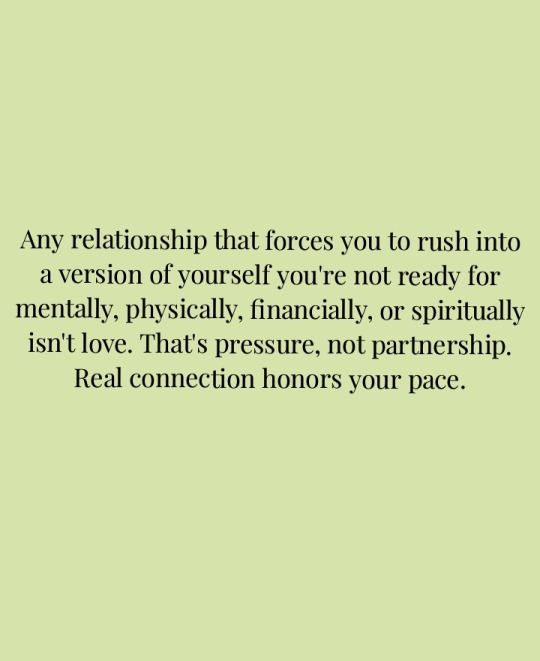#PhysicalHealth
Explore tagged Tumblr posts
Text

#tired#sleepy#exhausted#fatigued#drained#worn out#burnt out#need a break#need to rest#need sleep#cant keep my eyes open#ready for bed#time for a nap#mentalhealth#emotionalhealth#physicalhealth#work#school#stress#overwhelm#burnout#self-care#rest#sleep
143 notes
·
View notes
Text

ake care of your body, it's the only place you have to live. Exercise, eat well, and get enough sleep – your mental health will thank you. . . . 💪 Double-tap if you agree, and share to spread the love!
#BodyAndMind#MentalHealthAndWellness#ExerciseForMentalHealth#EatWellFeelWell#RestIsImportant#HealthyLiving#SelfCareMatters#MindfulLiving#TakeCareOfYourBody#MentalWellness#HealthyHabits#HolisticHealth#BalancedLife#PhysicalHealth#MentalHealthTips#SelfLove#HealthyLifestyle#MindBodyConnection#PositiveWellbeing#FitnessAndMentalHealth#RestAndRecharge#WellnessJourney#SelfCareRoutine#fhealync
9 notes
·
View notes
Text

#mentalhealth#physicalhealth#financialhealth#spiritualhealth#healing#selfimprovement#lifestyle#peace
2 notes
·
View notes
Text
A Year of Walking Meditation Shaina Tranquilino July 26, 2024

Embarking on a year-long journey of walking meditations can be a transformative experience, helping you cleanse your mind, body, and spirit while renewing your outlook on life. This simple yet profound practice combines the physical benefits of walking with the mental clarity of meditation, fostering a deeper connection to yourself and the world around you. Here’s how you can integrate walking meditations into your daily routine over the course of a year to achieve lasting change.
Why Walking Meditation?
Walking meditation is a mindfulness practice that involves focusing on the act of walking. It encourages you to be present in the moment, aware of each step, and in tune with your surroundings. Unlike sitting meditation, it incorporates movement, making it accessible and beneficial for those who find it challenging to sit still. The rhythmic nature of walking can help calm your mind, reduce stress, and promote overall well-being.
The Benefits of a Year-Long Commitment
1. Physical Health
Regular walking improves cardiovascular health, boosts energy levels, and aids in weight management. When combined with meditation, it also lowers blood pressure and enhances the immune system. Over the course of a year, these benefits accumulate, leading to significant improvements in your physical health.
2. Mental Clarity
Walking meditation encourages mindfulness, helping you clear mental clutter and focus on the present. This practice can reduce anxiety and depression, improve concentration, and enhance creativity. As you dedicate a year to this practice, you’ll find that your mental clarity and emotional stability increase substantially.
3. Emotional Balance
The meditative aspect of walking helps you process emotions and develop a deeper understanding of your feelings. This can lead to greater emotional resilience and a more balanced perspective on life’s challenges.
4. Spiritual Growth
Walking meditation can deepen your connection to nature and the universe. It provides an opportunity for introspection and spiritual reflection, allowing you to explore your inner self and foster a sense of peace and harmony.
How to Begin Your Year of Walking Meditations
1. Set Your Intentions
Start by setting clear intentions for your year-long journey. Reflect on why you want to commit to this practice and what you hope to achieve. Write down your goals and revisit them regularly to stay motivated and focused.
2. Choose Your Path
Select a safe and comfortable walking route. It could be a park, a nature trail, or even a quiet neighborhood street. The important thing is that it’s a place where you feel relaxed and can walk without interruptions.
3. Establish a Routine
Consistency is key. Decide on a time of day that works best for you, whether it’s early morning, during lunch breaks, or in the evening. Aim for at least 20-30 minutes of walking meditation daily.
4. Focus on Your Breath
As you walk, pay attention to your breath. Breathe deeply and rhythmically, synchronizing your breath with your steps. This helps anchor your mind in the present moment and enhances the meditative aspect of the practice.
5. Observe Your Surroundings
Engage your senses by observing your surroundings. Notice the colors, sounds, and smells around you. Feel the ground beneath your feet and the breeze on your skin. This sensory awareness helps ground you in the present moment.
6. Be Present
If your mind starts to wander, gently bring your focus back to your breath and your steps. It’s normal for thoughts to arise, but try not to get carried away by them. Acknowledge them and let them go, returning to the present moment.
7. Reflect and Journal
After each walk, take a few minutes to reflect on your experience. Consider keeping a journal to record your thoughts, feelings, and any insights you gain. This can help you track your progress and deepen your self-awareness over time.
Monthly Themes to Guide Your Journey
To keep your practice fresh and engaging, consider focusing on a different theme each month. Here are some ideas:
January: New Beginnings – Focus on setting intentions and embracing new possibilities.
February: Self-Love – Cultivate compassion and kindness towards yourself.
March: Mindfulness – Practice being fully present in each moment.
April: Nature Connection – Deepen your awareness of the natural world.
May: Gratitude – Reflect on the things you’re thankful for.
June: Simplicity – Embrace the beauty of simple pleasures.
July: Joy – Seek out moments of happiness and laughter.
August: Letting Go – Release what no longer serves you.
September: Balance – Strive for harmony in all aspects of your life.
October: Reflection – Look back on your journey and acknowledge your growth.
November: Acceptance – Embrace yourself and your life as they are.
December: Peace – Cultivate inner calm and tranquility.
A year of walking meditations offers a holistic approach to cleansing and renewing your life. By committing to this practice, you can enhance your physical health, mental clarity, emotional balance, and spiritual growth. Each step you take on this journey brings you closer to a more mindful, peaceful, and fulfilled life. So, lace up your walking shoes, take a deep breath, and embark on this transformative adventure. Your path to renewal awaits.
#WalkingMeditation#Mindfulness#YearOfMeditation#MeditationJourney#MentalClarity#EmotionalBalance#SpiritualGrowth#PhysicalHealth#MindBodySpirit#MeditativeWalking#InnerPeace#NatureConnection#SelfCare#WellnessJourney#DailyMeditation#MindfulLiving#StressRelief#PersonalGrowth#WalkingForWellness#TransformYourLife
4 notes
·
View notes
Text
Failed Back Syndrome Treatment – Everything You Need to Know
Failed Back Syndrome is overwhelming and can disturb your quality of life. Therefore, timely failed back syndrome treatment is necessary to manage the pain and get rid of mobility issues. After all, pain affects not only physical health but mental health too.
#FailedBackSyndrome#BackPainRelief#ChronicPainSupport#SpineHealth#PainManagement#MobilityMatters#MentalHealthAwareness#PhysicalHealth#PainReliefTreatment#FailedBackSyndromeTreatment#BackPainAwareness#ChronicPainHelp#QualityOfLife#WellnessJourney#SpinalCare#PainRecovery#HealthAndWellness#GetMovingAgain#MindBodyHealth#LivingWithChronicPain
1 note
·
View note
Text
If you are looking for a fitness class and don't want to leave your home, watch this video of me doing some virtual Tai Chi poses through the BORP organization (the Bay Area Outreach Program). All classes are free, and they are open to donations. All their fitness classes are for all abilities. If you want to get the information, watch this video and check down in the description box to register.
#fyp #dancing #adaptivefitness #disability #allabilitydance #fitness #borp #physicalhealth #mentalhealth #taichi #osteoporosis #osteopenia
youtube
#fyp#dancing#adaptivefitness#disability#allabilitydance#fitness#borp#physicalhealth#mentalhealth#taichi#osteoporosis#osteopenia#Youtube
2 notes
·
View notes
Text
Cyrca Disappointment
I finished my Cyrca appointment at Hilo shopping center today. They’re the state Dr for welfare financial. Dr basically said because I’m a college student that I might not qualify for benefits even with my disabilities, mental and physical injured leg, but that she’d ask the board to look at it and see what they determine. Crazy, little does she know I’m not registered for Fall yet if I can’t…
#collegelife#cyrca#entrepreneur#injuredleg#lifelong-learner#mechanic#mentalhealth#physicalhealth#teacher#welfarefinancial
0 notes
Text
World Blood Donor Day honors lifesaving contributions of voluntary donors.

View On WordPress
#BalancedLife#HealthAndFitness#HealthyLiving#HolisticHealth#MentalWellness#NutritionMatters#panvel#PhysicalHealth#SelfCareRoutine#StayActive#WellnessTips
0 notes
Text

I'm a long-term user of Gabapentin and would like to know if there are any serious side effects from prolonged use. I purchased it from this website: https://www.begja.com/gabapentin-300-mg-capsules-seizure-control-for-partial-epilepsy-7702
#gabapentin#begja#gabapentinuses#gabapentinsideeffects#nervepainrelief#neuropathy#healthawareness#medicationguide#prescriptiondrugs#mentalhealth#physicalhealth#drugeducation#gabapentininfo#begjahealth#responsibledruguse
0 notes
Text

#itwillpass#art#hope#healing#resilience#transformation#growth#perseverance#strength#courage#inspiration#motivation#lightattheendofthetunnel#mentalhealth#emotionalhealth#physicalhealth#relationships#grief#loss#trauma#adversity#challenge#struggle#overcoming#survivor#thriver
10 notes
·
View notes
Text
Sleep’s Influence on Body and Mind

The Impact of Sleep on Physical and Mental Health
Sleep’s Influence on Body and Mind Is more than just rest—it is a vital process that allows the body and mind to recharge, repair, and prepare for the day ahead. Both physical and mental health depend heavily on the quality and quantity of sleep we get. Despite this, sleep is often undervalued in our fast-paced society, leading to widespread sleep deprivation and its harmful consequences. Physical Health Benefits of Sleep When Sleep’s Influence on Body and Mind, our bodies enter a state of repair and recovery. During deep sleep stages, tissues grow and repair, muscles build, and the immune system strengthens. Sleep also plays a critical role in maintaining a healthy metabolism. Poor sleep has been linked to weight gain, increased risk of diabetes, and cardiovascular diseases. Sleep helps regulate the production of hormones, including those that control hunger (ghrelin and leptin), growth, and stress. Without adequate rest, these hormonal balances are disrupted, which can lead to overeating, fatigue, and increased stress levels. Consistently getting enough sleep improves energy levels, reaction times, and overall physical performance. Mental and Emotional Well-being Sleep is equally important for mental health. It directly affects how our brain functions, including memory consolidation, learning, decision-making, and emotional regulation. A good night’s sleep allows the brain to process information gathered during the day, store important memories, and clear away toxins. Sleep deprivation has been associated with mood disorders such as anxiety, depression, and irritability. Lack of sleep also impairs judgment, concentration, and problem-solving skills, which can affect both work and relationships. Moreover, dreams that occur during REM sleep are thought to help us process emotions and cope with stress. Without enough REM sleep, individuals may feel more emotionally overwhelmed and less resilient to daily challenges. Improving Sleep for Better Health Establishing healthy sleep habits is essential for overall well-being. Here are some tips for better sleep: Stick to a regular sleep schedule, even on weekends. Create a restful environment — dark, quiet, and cool rooms are ideal. Avoid screens at least an hour before bedtime, as blue light can disrupt melatonin production. Limit caffeine and alcohol, especially in the evening. Engage in relaxing activities before bed, such as reading or gentle stretching. Conclusion Sleep’s Influence on Body and Mind is a powerful and essential part of a healthy lifestyle. Its influence on both body and mind is profound, affecting everything from immune function to emotional balance. Prioritizing sleep isn’t just about feeling rested — it’s a critical investment in long-term physical and mental health. Read the full article
#BenefitsofSleep#EmotionalHealth#enoughsleep#Health#HealthySleepHabits#HormonesandSleep#ImportanceofSleep#Investment#MentalHealth#PhysicalHealth#REMSleep#Sleep#SleepandMentalHealth#SleepandPhysicalHealth#SleepDeprivation#SleepDisorders#SleepTips#StressandSleep#Wellness
0 notes
Text
Walk for at least 30 minutes every dayA daily walk boosts heart health, burns calories, and improves your mood. It’s one of the easiest ways to stay active.2. Drink enough waterAim for at least 8 glasses of water a day. Staying hydrated supports digestion, energy levels, and kidney function.3. Prioritize quality sleepAdults should get 7–8 hours of sleep per night. Sleep is essential for physical recovery, brain function, and a strong immune system.4. Eat fresh fruits and vegetablesThese are loaded with vitamins, minerals, and fiber. They strengthen your immune system and help with digestion.5. Stretch or move your body regularlyGentle stretches or light exercises keep your muscles flexible and reduce physical tension or pain.---Take care of your body—it's the only place you have to live.---
#healthtips#physicalhealth#wellness#dailyhabits#selfcare#healthylifestyle#fitnessmotivation#stayhealthy#simplehealthtips#mindandbody
0 notes
Text
A Call to Compassion: How the Church Can Embrace the Poor and Marginalized
Introduction: The Silent Struggles of the Poor
In many communities, poverty isn’t just about lacking material things; it’s about feeling invisible, unheard, and even rejected. For some people, going to church, which should be a place of comfort and support, becomes a challenge because their financial struggles create walls between them and others. They may not have the luxury of private space, transportation, or even enough food to eat. And when they do manage to come, they often face judgment or feel like they don’t belong.
Yet, the church is meant to be a place where everyone can find grace, hope, and acceptance, no matter their circumstances. So why is it that so many poor people feel excluded, even within these walls?
The Invisible Barriers: More Than Just Financial Struggles
For many poor individuals, the barriers to attending church go beyond finances. It’s about not having enough money for transportation, not having a stable job, or even feeling like their voices don’t matter in church activities. It’s about living in tiny spaces, with too many people, and trying to survive from day to day.
The stress of living in these conditions can wear people down mentally, emotionally, and spiritually. And yet, many people in poverty can’t find the mental space or energy to invest in their faith. The system isn’t designed to support them, and the church community often doesn’t realize the invisible weight these individuals carry.
The Need for Compassion: A Church That Listens
The truth is, the church is supposed to be a place where all can feel at home, especially those who are hurting the most. But for the poor, this isn't always the reality. Too often, they feel judged by their circumstances. Whether it's because they can't afford nice clothes or don't have the time to dedicate to church activities, they often feel overlooked or out of place.
It’s important to recognize that being poor isn't just about financial hardship—it can lead to emotional and spiritual hardship as well. People living in poverty may carry trauma, shame, or isolation that makes it difficult for them to engage in church life. But the church should be the space that embraces them, not pushes them away.
Practical Ways to Show Compassion
While we can’t solve everything with money, there are many ways the church can become a more welcoming place for the poor:
Create Safe, Welcoming Spaces: A church that is truly inclusive should make sure that everyone, regardless of their income, feels comfortable and accepted. This means offering kindness, understanding, and patience to those who may feel like they don’t belong.
Transportation and Access: Many people can’t get to church because they don’t have money for transportation. Offering rides or organizing carpooling among church members can make a huge difference.
Basic Needs Support: Churches can provide meals, clothing, or even basic school supplies for children. These simple acts can relieve significant burdens on struggling families.
Emotional and Spiritual Care: The mental and emotional toll of poverty can’t be overlooked. Providing counseling or a space to talk can offer healing and comfort to people who feel alone or unsupported.
Empower, Don’t Judge: Instead of making people feel like charity cases, empower them to engage in the community in meaningful ways. Offer opportunities for poor people to serve, share their experiences, and contribute in ways that make them feel valued.
The Power of Listening
Perhaps the most important thing we can do as a church is to listen. Many poor individuals feel that their voices aren’t heard, that they have no say in the life of the church. Listening to their stories, understanding their struggles, and truly seeing them for who they are can help restore their dignity and sense of belonging.
Conclusion: A Church for Everyone
The church should be a place where the poor feel welcomed, where their struggles are acknowledged, and where their voices are heard. It's time to break the stigma and the invisible barriers that prevent the poor from fully engaging in the church community. If we can learn to see the poor not as “charity cases,” but as valuable members of our community with their own strengths, gifts, and contributions, we will truly reflect the heart of Christ.
Let’s build a church that isn’t just about preaching love—it’s about living love through action. A church that is a safe haven for everyone, especially those who need it the most.
Call to Action:
If you see the struggles of the poor around you, take a moment to reflect on how you might offer support—whether it's through listening, offering your time, or extending compassion in small, everyday ways. Together, we can make the church a place of true community for everyone.
#poor#poverty#church#christianity#calltoaction#compassion#giving#gift#listening#help#care#mentalhealth#physicalhealth#needs#empowerment#safespace#welcome#access#transporation#helpinghands#volunteer#unheard#themisfits#struggles#lifestruggles#challenge#lifechallenges#valuable#contribution#life
0 notes
Text
#NeckPain#RightSidePain#PainRelief#HealthTips#Wellness#PhysicalHealth#ChronicPain#PostureMatters#SelfCare#MedicalAdvice
1 note
·
View note
Text

🌍 World Health Day | 7th April 2025 "Your Health, Your Right"
Wishing you a Happy and Healthy World Health Day! Let this day be a reminder to prioritize your physical, mental, and emotional well-being — not just today, but every day.
Take a step towards a healthier, happier you. 💚
#WorldHealthDay#HealthForAll#YourHealthYourRight#StayHealthy#MentalWellbeing#PhysicalHealth#HealthyLifestyle#WellnessMatters#GlobalHealth#HealthAwareness
0 notes
Text
#صحة#فوائد_الرياضة#الرياضة#رياضة_وصحة#العقل_السليم_في_الجسم_السليم#اللياقة_البدنية#صحة_الجسم#الصحة_النفسية#الرياضة_للحياة#تمارين_رياضية#نمط_حياة_صحي#عقل_سليم#تطوير_الذات#رياضة_وعقل#Health#Fitness#ExerciseBenefits#Workout#MentalHealth#PhysicalHealth#HealthyLifestyle#StayActive#MindAndBody#Wellness#Sports#FitLife#HealthyMind#Strength#Endorphins#biophilia nutrition
0 notes